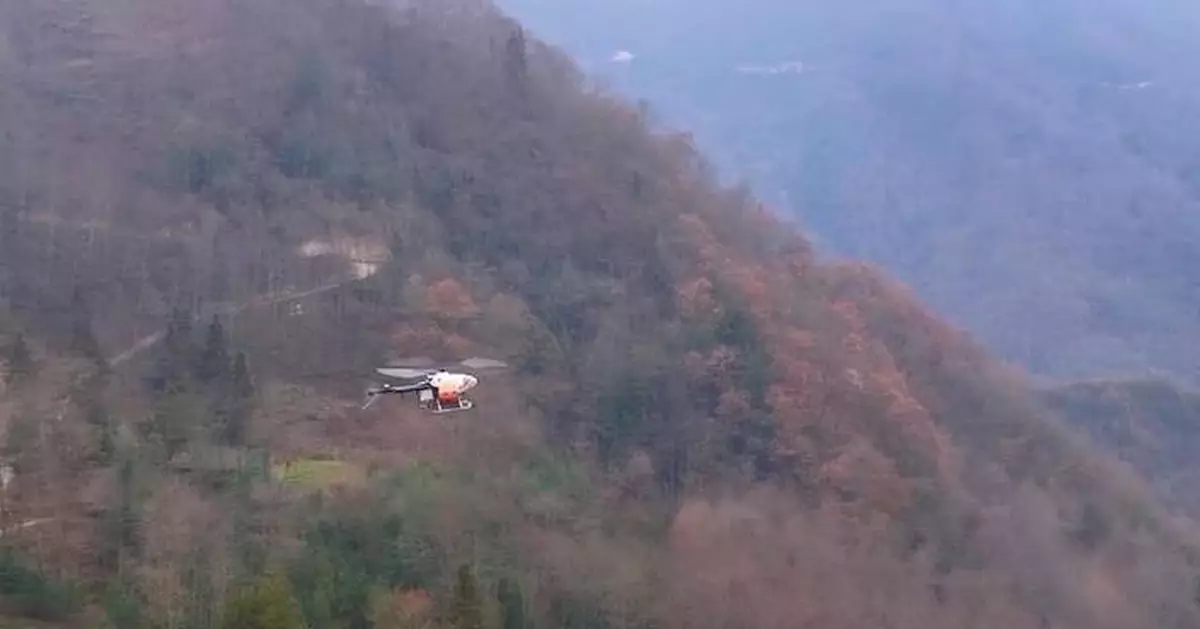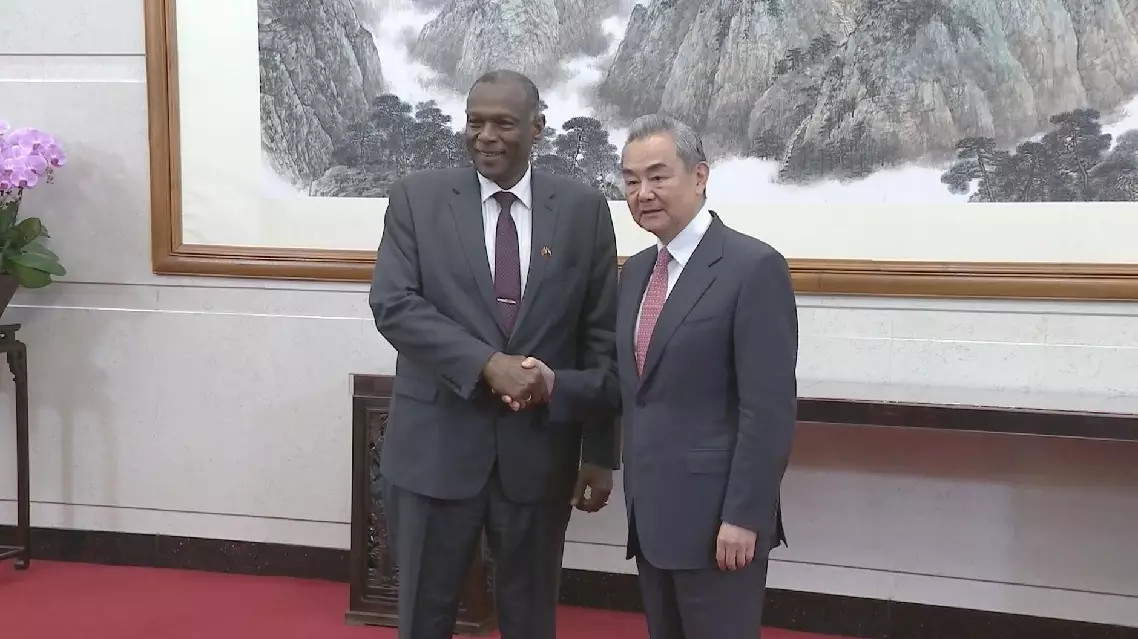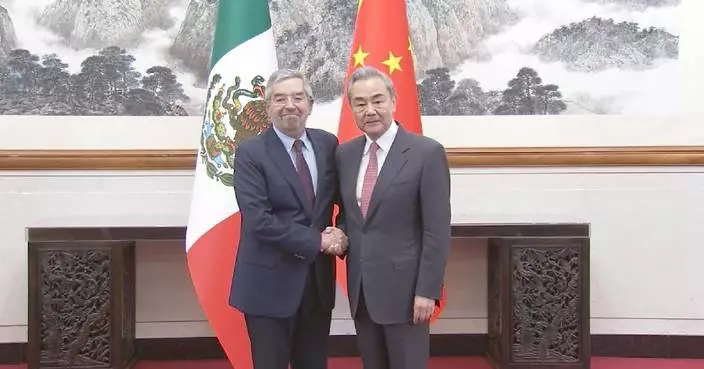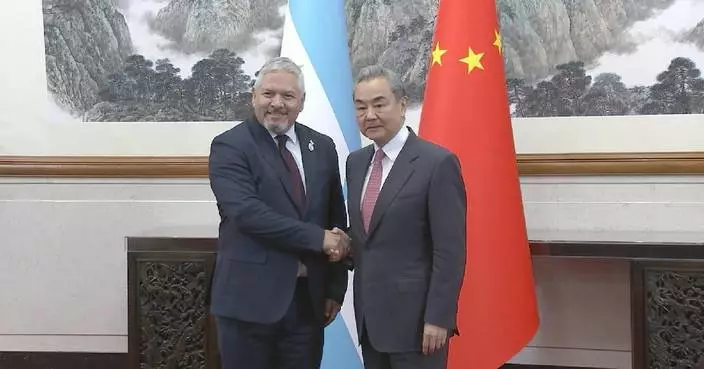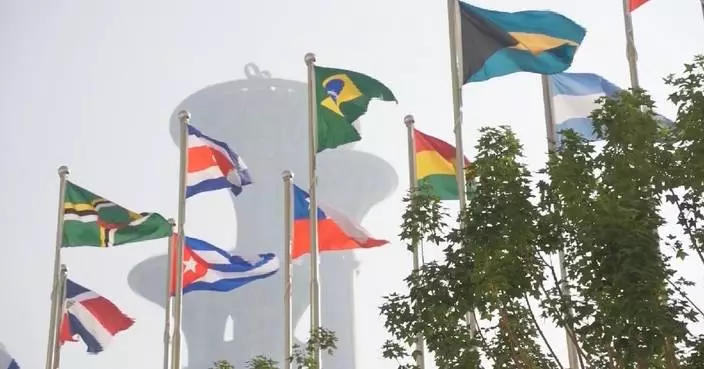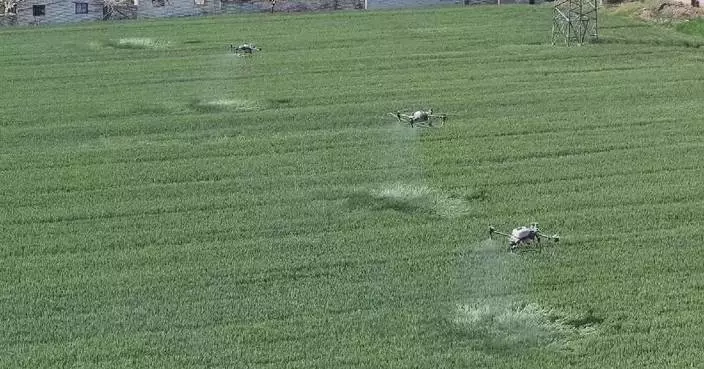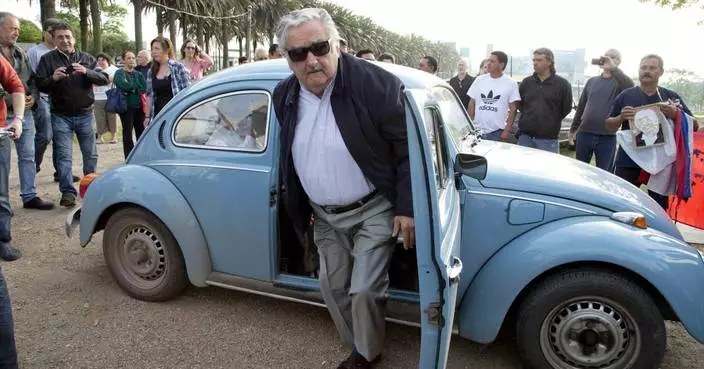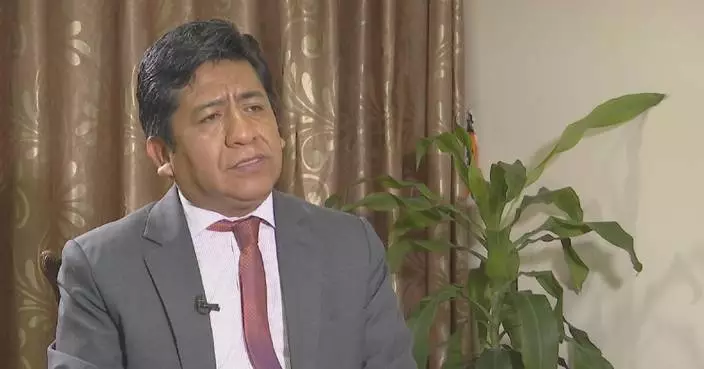Delivery drones allow villagers in the mountainous areas of Sichuan Province to transport and sell their local specialties to broader markets across China.
In Badi Township, Beichuan Qiang Autonomous County, where icy winter roads block transportation to mountain villages, drones swiftly deliver fresh meat and other local specialties to post offices, from where they are distributed to major cities.
"Our Tibetan pigs are raised in the mountains at an altitude of over 2,000 meters. In winter, icy roads and rainy weather make driving up here very difficult. Last year, we had to hire people to carry the pigs down the mountains to sell them. Each person could only carry half a pig per trip and make two trips a day before dusk. It cost 150 yuan (about 20.49 U.S. dollars) per day per person to transport one pig. This year, thanks to Beichuan's thriving aviation industry, we are using drones to transport our pork. Each trip takes just over 10 minutes and costs only about 10 yuan (about 1.37 U.S. dollars). So far, we have sold more than 1,000 pigs this way this year, with another 1,000 still to go," said Ma Hong, a Tibetan pork seller.
"We used to mainly ship cured meat, but ever since drones began transporting goods from the mountains this year in towns and villages, fresh meat shipments have increased significantly. Goods arrive at the [China Post] station and are packed and shipped out immediately. Big cities like Beijing, Shanghai, and Guangzhou can receive them the next day. It's very convenient," said Ren Xiaorong, head of a local China Post station.
In addition to drone deliveries, Beichuan has also intensified efforts in e-commerce and livestream training to broaden the sales channels for local agricultural products.
In Dongjiang Village, Piankou Township, local villagers sell cured pork, ribs, and sausages through e-commerce platforms and livestreaming, with estimated sales exceeding 5 million yuan (approximately 680,000 U.S. dollars) this year.
"At first, we only had a few hundred orders. Then, through offline referrals from our regular customers, the orders surpassed 1,000. Later, with livestream training and government support, we began selling both online and offline. Now, our cured products are shipped across China. So far, we have fulfilled 4,000–5,000 orders, and with the Spring Festival arriving, we're preparing and shipping over 10,000 more orders," said Wang Xiaoli, a seller of cured products.
To ensure the smooth delivery of agricultural goods, postal and courier companies are enhancing their services by providing free vacuum packing and expanding rural collection routes.
"th the Spring Festival approaching, the volume of goods from Beichuan has significantly increased compared to last year. I estimate that before services are suspended for the Spring Festival holiday, the total volume will grow by around 50 percent year on year. As couriers, we'll ensure the safe and efficient delivery of Beichuan's goods to our customers," said Li Chao, a courier with Yunda Express.
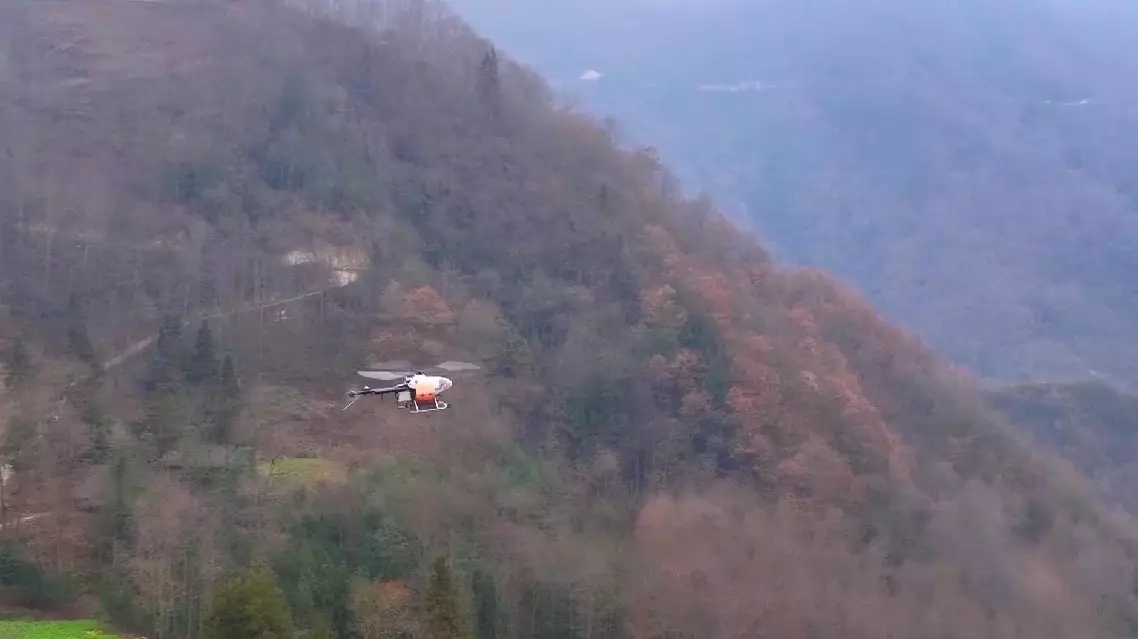
Delivery drones fly local specialties from Sichuan's remote villages to broader markets
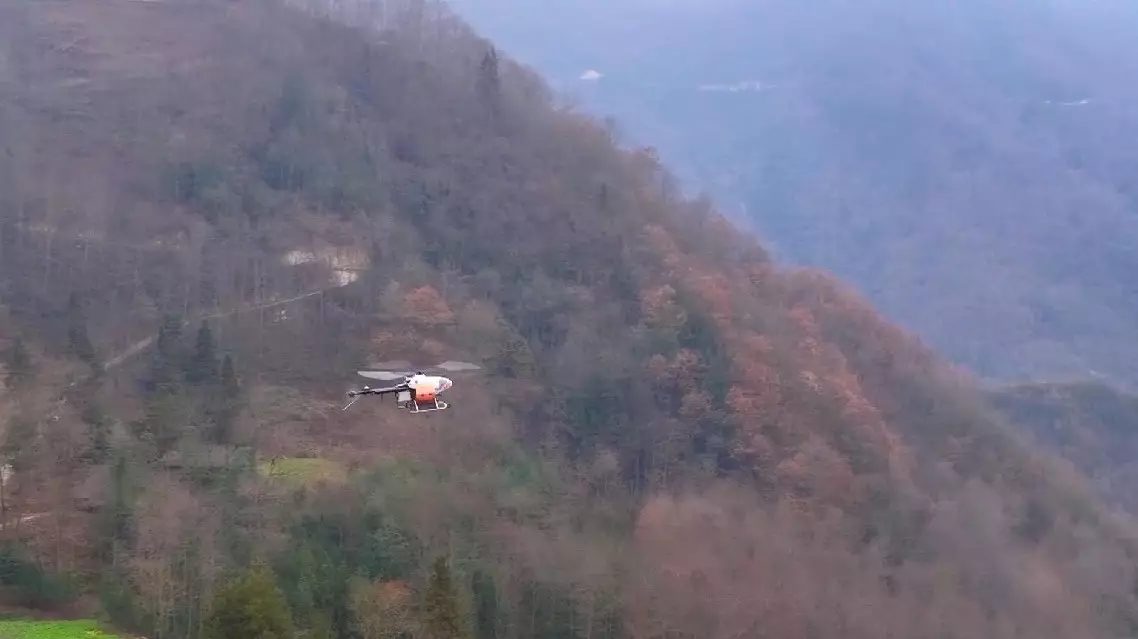
Delivery drones fly local specialties from Sichuan's remote villages to broader markets
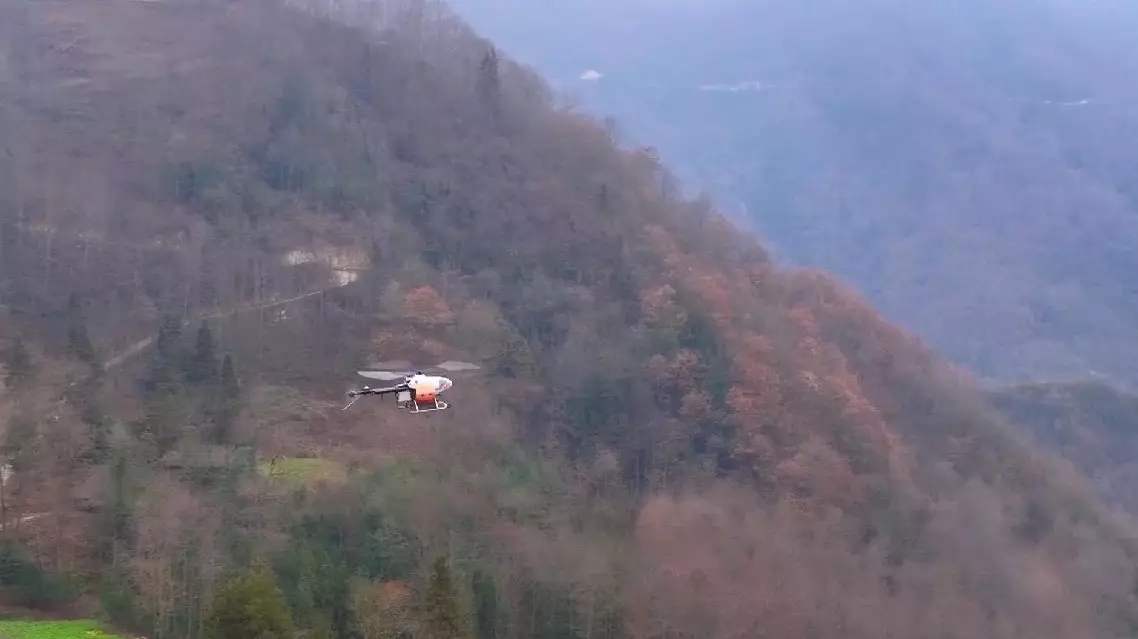
Delivery drones fly local specialties from Sichuan's remote villages to broader markets


